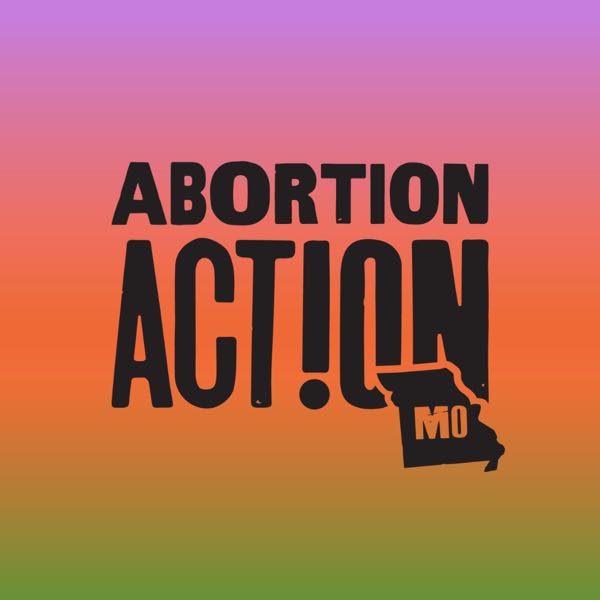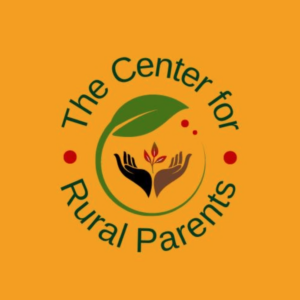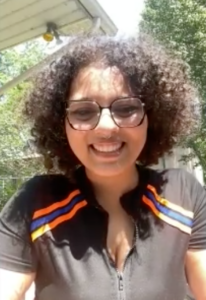An Interview with a Maintainer: Aaliyah Bailey
This interview was conducted on June 15, 2023, between maintainer Aaliyah Sweet P. Bailey and The Maintainers’ community outreach and engagement coordinator, Liliana.
“An Interview with a Maintainer” is a part of the Maintainers Spotlight series, blog posts focused on highlighting the efforts of Maintainers across our networks. If you would like to amplify the work of a Maintainer or maintenance effort in your community, please reach out to our community outreach and events coordinator at liliana@themaintainers.org.

Liliana: Hey Aaliyah, so glad to chat with you today! Will you tell us a little bit about your background, and how you came to be a maintainer? Or someone who dedicates a lot of their time to maintenance, repair, and care work?:
Aaliyah: Thank you so much for interviewing me, I’m so glad to be here today. Yes, so my name is Aaliyah Sweet P. Bailey. I use they and she pronouns and I am the digital strategist at Abortion Action Missouri in St.Louis, Missouri.

Growing up, I was born and raised in Nashville, Illinois. It’s about an hour outside of St. Louis. My dad was one of the first three Black men to live in our county, which is kind of crazy, considering he moved here in the nineties to Southern Illinois. Growing up, my childhood was marked by a lot of racist and racially fueled violence within the school system as well as just within the community. We’ve faced a lot of property damage and things like that. But we refuse to give up. My family is still healing from a racially motivated attack over Memorial Day weekend just a few weeks ago, and so that has just really fueled my fire to do my work. My mom’s farm is our family farm, where my daughter is going to be the fourth generation owner of that, so, we need to be here in this community. We deserve to be here, and I wanna make sure that it is safe for other people who look like me that are coming into this community.
Back in 2021 my brother, my sister, and I started the Blackroads Project which, going forward, will be known as the Center for Rural Parents, as we formalize and become a 501(c)3 nonprofit, and all that exciting stuff. We are a reproductive justice organization dedicated to creating safe and sustainable rural communities free from violence. We do that by advocating for love and addressing the parenting needs of rural folks. Parenting may not be the path for everyone, but we are all children, so by addressing the parenting that we have in our communities, we think that we can, you know, really create that safe and sustainable environment and community for all of the folks who are here.
L: Thanks so much for sharing. I’m curious if there other threads that you’ve identified as putting you on the path of doing maintenance, repair, and care work.
A: Yeah. So at just 23, I decided to run for Missouri State Representative of District 64. My district was in St. Charles and Lincoln Counties, which are right on the other side of St. Louis County. It’s about an hour outside of St. Louis, exactly like my hometown of Nashville. So all of the demographics were pretty much the same, and I felt very comfortable and very at home in that district.
I had lived there for 5 years, and, as I said, very just a familiar environment. This was in 2020. So of course, we had a lot of other things happening in 2020, but as I jumped into that work I had a lot of folks question why I was interested in serving this community, and the reason that they were so curious, is because I’m a Black person, and I’m in this rural space. It took me a while to understand that, because, you know, as I said, I grew up on a farm, I grew up in a rural community. People were having a hard time understanding why I would want to do that. Then I realized that throughout the Midwest people really think that there are no Black communities or BIPOC communities in general in our rural areas, and that is simply not true.
After my campaign, I was the Democratic nominee, in that election cycle, and as I continued to engage with various political organizations, or just like kind of general advocacy organizations, I realize that not only not realize that people who looked like me who lived in these rural communities, but they also just weren’t that concerned about rural communities in general.
I am very interested in health. So that’s kind of the sphere that I stick to. That’s my lane, and you know, rural folks face a variety of healthcare challenges from transportation and infrastructure to the availability of healthcare facilities, clinics, and providers themselves… all the way to just the health, education, and literacy that folks are taught in these communities to be able to stay healthy and take care of themselves.
So I saw all of those needs, and I just continued to spread awareness and I’m so excited at this point to say that most of the progressive organizations within the city of St. Louis are recognizing the importance of rural folks, adding that to their list of communities they’re interested in supporting and finding ways to have more of that rural-urban partnerships and also interstate partnerships… as I live in the metro East in Illinois, and I’m working with folks who are in St. Louis and Missouri. However, Chicago’s not gonna serve us down here. We need our friends and partners over in St. Louis. So inter-state community cooperation is another big thing that I advocate for as well.

L: Thank you so much, this is awesome to learn about. In what ways do you understand the role of maintenance to contribute to a more caring world? How do you understand the role of repair, care, or maintenance in your particular community or network?
A: I think we’re more on the repair side and the maintenance side when we’re talking about rural health. For decades rural communities have been forgotten about and used as scapegoats for political gains on both sides of the aisle. I’m very clear that my work is not partisan. I think that in general, our rural folks are forgotten by everyone, and so that does not fall along party lines. Whenever we are talking about rural health, and talking about rural communities, we are looking at communities that may not have roads, that may not have post offices, and there are a lot of modern conveniences that we have in our urban and suburban areas such as medication drop off that we aren’t going to have access to out here because of the wide distances between homes between, a pharmacy and where someone lives.
And so I just got to thinking, How can we overcome this? How can we create mutual aid to support ourselves, and question what is the role of these other state-level or regional-level organizations, also our government in supporting these individuals and making sure that they have access to these healthcare needs to live safe and healthy lives?

L: Thank you so much. What is something that people might not know about the repair care or maintenance work that you do?
A: I was waiting for this question! So one of the things I love to talk about is the intentional whitewashing of rural communities within the Midwest. There is a long history of keeping Black people, Indigenous people, and other people of color out of rural communities that haven’t been noticed, because out here, well, things that happen out here don’t make the news. So, going back my brother who is the historian with our work has all kinds of stories about in the town over from where I live several decades ago 2 Black men have all kinds of stories about in the town over from where I live. Several decades ago 2 Black men were lynched, that’s something that you will never find in history books. It’s something that folks most folks don’t talk about, you know.
He knows this because he goes out and looks for these stories, but because we don’t know that history we don’t know the impacts that has. A lot of people will say, “Oh, well, Black folks just don’t live here”, but we are forced out of here… for decades we were. And now, if you look at the population debt data for the past several decades, you will see that, although closer to the nineties and the 2000’s a higher level of the BIPOC population in the midwest was centered in our urban course, which is Chicago, St. Louis, Detroit. We are starting to move around, as we are all facing challenges to housing, challenges to liveable wages, and just other things that are pushing us out. And so, although there may not be a large Black community. Well, first of all, even one person is enough. Even one person is reason enough and worthy of having the support and resources to let a safe and healthy life. But beyond that, we know that our BIPOC populations are growing, and whenever they come here it is important to me that they are going to be safe and cared for when they get here.
L: Thank you. Is there any else that you would like to share with us about the work that you do, or your views on maintenance, repair, and care?
A: Yeah. First of all, just to give rural folks a chance! A lot of times we fall into those negative stereotypes about who we are and what we think. I’m here to say that I am a queer Black single mom who’s gender nonconforming and pro-abortion. And all of the progressive things that I was born and raised here. That’s because my community does have progressive values. Unfortunately, there aren’t many progressive organizations that engage us out here, so we don’t have an outlet, for when we want to be politically or civically involved, or we want to be involved in our communities and organizations. So I’m just really here for folks who are interested in rural areas. Go ahead and give us a chance. Come on out! We are excited and ready and waiting to create the future that we want to see. One that is safe. One where we can all parent with dignity and respect. That we can all grow old, and, you know, just really have successful lives.
I think that the only other thing that I want to share is the importance of voting in healthcare. One of the big pieces of work that I’m trying to get started and moving forward is being able to register rural voters. We are all affected by voter suppression efforts across the region, both in Illinois and in Missouri, where I primarily do my work. We must register to vote. We must get to the polls to what 2024 is coming up. Folks are already talking about running for President, so that’s going to be a big election. That’s going to be where my efforts are focused in the next year so that we can get the folks in office who are going to make the changes that we need to see.
L: How folks can find you?
A: Folks can find me on LinkedIn, Twitter, TikTok and Instagram